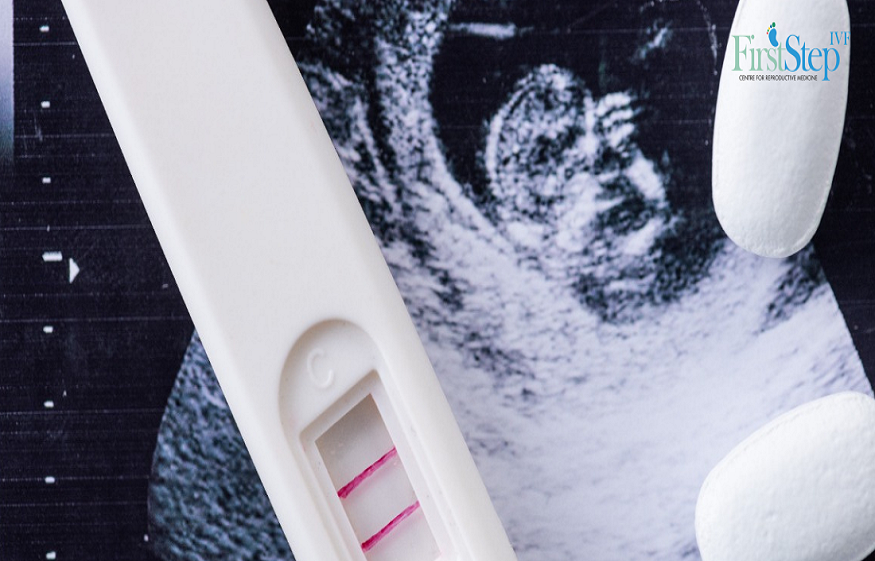Fibroids are considered the common causes of infertility in women, which affects their childbearing age. Fibroids that grow in the lining of the womb are called uterine fibroids.
Many women may not know they have a fibroid because it is misinterpreted as period pain or is asymptomatic. However, when the pain seems unbearable, the bleeding profuse, or problems conceiving, only then a woman consult a doctor. This article will focus on fibroid symptoms and their impact on fertility.
Introduction
Fibroids or uterine fibroids are dense, firm, and non-cancerous tumours that develop from the uterus’s muscle layer. Fibroids can grow outside the uterine wall, inside the uterine cavity, or within the uterine wall, with sizes be as small as a pea or more significant than a grapefruit. 40% to 60% of women have fibroids by age 35 and 80% by age 50.
It depends on the size and location of the fibroid in the uterus, whether fibroid pregnancy can be normal or complicated. However, the causes of fibroids are unclear, but female sex hormone levels and genetics could be the cause. Moreover, a family background of fibroids, obesity can also be considered a possible cause of fibroids.
Symptoms of fibroids
Most women reported having no symptoms. However, the most common symptoms include-
- Pelvic Pain
- Pain during sex
- Bloating
- Heavy or painful periods
- Prolonged periods
- Low back pain
- Infertility
- Miscarriage or preterm labour
- Frequent urination
- Rectal pressure
- Enlarged abdomen
Can Fibroids Cause Infertility?
Most people assume that fibroids lead to infertility; however, this is not true!
Some studies propose that fibroids may cause infertility; however, not every woman with fibroids is infertile. A health expert can better analyze what causes infertility. We at first step IVF strive to guide you with proper knowledge and to provide the best IVF In Delhi.
However, there are some risks associated with pregnancy and fibroids-
- Fibroids may, in some cases, alter the amount or quantity of sperm that can enter the uterus, making it difficult for conception.
- Blood flow to the uterus may be affected by the fibroids’ presence, and this may cause embryo implantation failure if conceived naturally or through in vitro fertilization
- Sometimes, the growth of fibroids in the fallopian tubes may prevent eggs from being released to the uterus, preventing conception.
- The increase of fibroids across the endometrium can prevent the fetus from growing appropriately, causing miscarriages in some cases.
- Fibroids can sometimes become the root of extreme pain in pregnant women.
- If a woman has fibroids, there is a higher risk of preterm delivery and c-section.
Does fibroid impact pregnancy?
Rarely! Many fibroids get pregnant naturally without any issue and even have normal pregnancies without any treatment. However, in some instances, fibroids can impact pregnancy.
How to treat fibroids during pregnancy?
It is challenging to treat fibroids during pregnancy because of the risk associated with the fetus. However, doctors may suggest proper bed rest, proper hydration, diet, and mild pain relievers, to manage symptoms.
It is only in unusual cases that a surgical procedure called myomectomy can be performed, even in the second half of pregnancy, to remove a fibroid from the outside or inside of the uterine wall. Fibroids in the uterus are not cured because of the possible risk to the fetus.
Debunking Myths about Fibroids & Infertility
Fibroids is responsible for infertility
Infertility can be caused by different reasons underlying hormonal imbalances, poor eggs or sperm quality, and low uterus. Therefore, if you cannot conceive, there must be some other reason for which you should consider seeing a doctor.
All fibroids are cancerous and permanently be removed surgically
Most fibroids are non-cancerous and have almost no danger to a woman’s life. In a case, the fibroids may be cancerous or are located in the fallopian tubes blocking the release of eggs; your doctor may suggest getting them surgically removed or providing you with certain medications to help relieve symptoms.
How to treat fibroids?
It is recommended to cure fibroids before pregnancy. So, if you are planning for conception, a preconception consultation with your doctor will be beneficial to avoid any risk that could impact your pregnancy.
The most typical treatments for fibroids are:
Gonadoliberina agonistes Medicine
This medicine blocks the production of estrogen and progesterone to put you in a state similar to that of menopause. After menstruation stops, the fibroids shrink.
Progestin-releasing intrauterine device (IUD) medication
This medication relieves heavy bleeding due to fibroids and does not shrink or eliminate fibroids.
Embolization of the uterine artery
This procedure does not grow to reduce the blood flow to fibroids, which eliminates it for foreigners and at the end.
Radiofrequency ablation
It is a non-surgical procedure where fibroids are destroyed using radiofrequency energy.
Laparoscopic or robotic myomectomy surgical procedure
It is a surgical procedure where the surgeon removes the fibroids and reconstructs your uterus.
Hysteroscopic myomectomy surgery
If you have submucosal fibroids that grow in the uterine cavity, this surgery removes the fibroids. A tool is inserted through the vagina and the cervix into the uterus.
It is firmly recommended to prepare the mind and body before natural conception or IVF. Fibroids don’t have any symptoms at the initial stage, but they could impact the pregnancy later. Our senior consultants at the First Step IVF clinic help you understand your body and boost your fertility health. Connect with us to start your journey of pregnancy.




